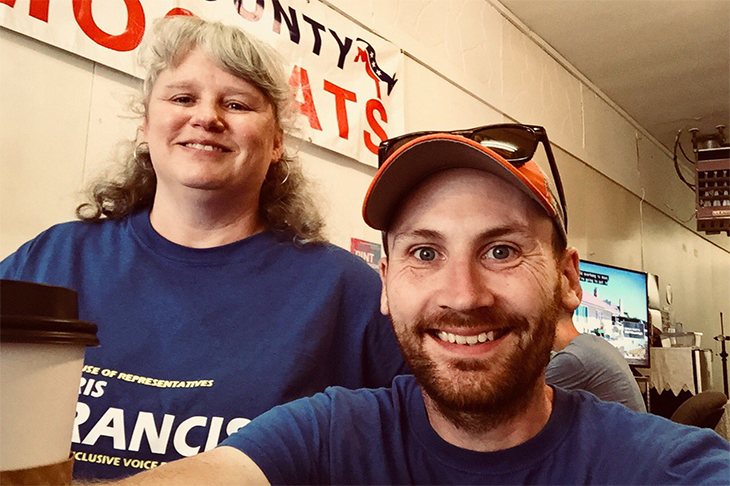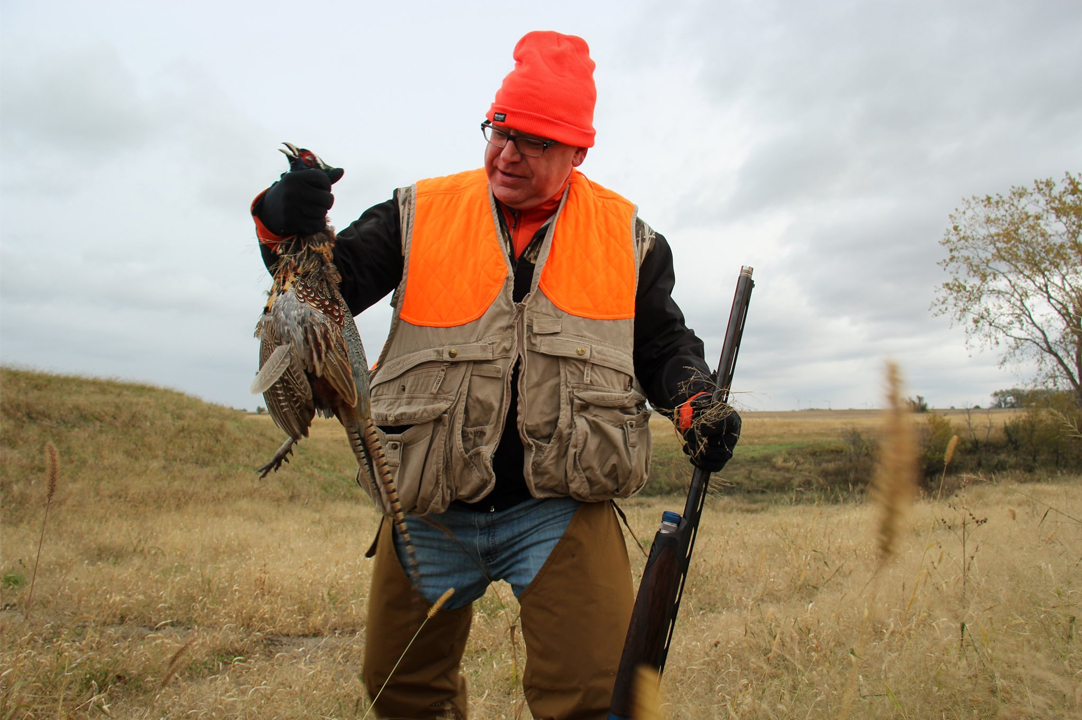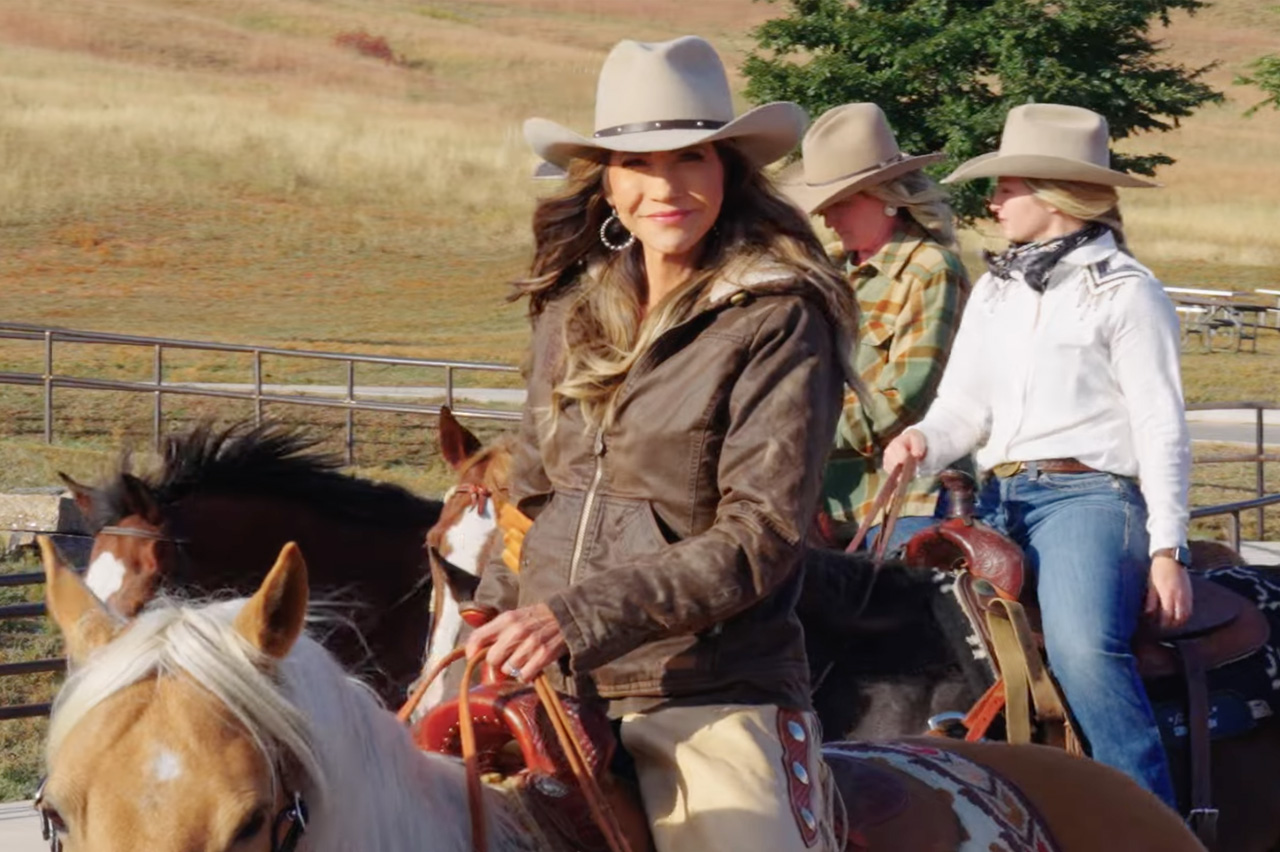Chris Francis stopped by my table down at the Sundog coffee shop to chat for about 20 minutes last Friday, and he didn’t ask for my vote.
Now, in the give and take of daily conversation — the ebb and flow of coffee-shop chatter in a small Midwestern town — lots of people don’t canvass for votes. But Chris is a Democratic candidate for one of the District 8 seats in the state legislature here in South Dakota, and he’s going to need all the support he can get when election day comes in November.
The reason Chris didn’t ask may be that he assumed I already planned to vote against him, although I’ve only met the man once or twice when I stopped by the Brickhouse, the local arts centre he runs. Or the reason may be that he assumed I already planned to vote for him, given that I was having lunch with the local college librarian, and his conversation with her was about registering students to vote, on the theory that anyone associated with a university is more likely to support the Democrats. For that matter, the reason may be that Chris Francis — a first-time candidate, joining the race only in June when Lake County Democratic leader Joan Stamm withdrew — has not yet grown practiced in the ways of modern retail politics.
But I like to think that the reason he didn’t do some straight-out campaigning, there in the coffee shop, is the residue of an old Midwestern kind of politeness. In the rural counties down South and the big cities back East, politics traditionally required gladhanding voters, directly canvassing for their votes. To the farmers of the Midwest, that would have mostly seemed bad manners.
In its long history of tribalism — and particularly in its recent mode of ersatz religion — politics always tempts us to an uncharity of interpretation, ascribing the worst intentions to those with whom we disagree. Refuse some pet project of the Democratic party? Your motive must be racism. Reject some hobbyhorse of the Republicans? Your motive must be anti-Americanism.
Manners exist in part to corral and contain such temptations, preventing them from spreading. The point of good manners is not to bring about universal kindness; in the kingdom of Heaven, we will not need to be well mannered. Rather, ordinary social manners admit the attraction of malevolence and the lure of hatred. Manners demand only that we mask them, lest they become contagious — as they have, in too much of American politics these days. Every time I look at Twitter, I long for a return to those old Midwestern virtues of reticence, understatement, and quiet manners.
Still, poor Chris Francis faces a difficult battle. Come election day, Lake County residents can vote at the volunteer fire stations in the towns of Chester, Wentworth, and Nunda, the parish hall of a church in Ramona, or the playhouse in the county seat of Madison — as American a set of polling places as one is ever likely to find. And last election, Lake County gave two-thirds of its votes to Republicans running for the pair of seats in the state legislature. Jason Unger, the top Democrat in the 2016 race, managed only 20 per cent of the electorate.
Unger is back again this year, running alongside Chris Francis. The two highest finishers win the election, and the Democrats’ best chance may come from the fact that both the Republican candidates are nearly as new as Francis. Marli Wiese, a farmer from Madison, has never faced a legislative election before. (She was appointed to fill out the term of Mathew Wollmann, a popular but sleazy local politician who resigned after getting caught soliciting sexual affairs with legislative aides). The other incumbent, Leslie Heinemann, withdrew after deciding the part-time state-house job wasn’t worth leaving his dental practice unattended. The Republicans replaced Heinemann on the ballot with Randy Gross, a farmer and president of a purebred-cattle organization.
These are the kind of elections the Democrats have to win, not just in South Dakota, but across the Midwest, given that Republicans now hold the trifecta of governorship and both legislative houses in 26 states, a simple majority of the nation’s political districts. After the 2016 election, the Republicans controlled the South Dakota senate 27 to 8 and the House of Representatives 60 to 10. If the coming election is nationalised — Trump is evil! Abortion rights are threatened! Republicans are racist! — the local Democrats will lose.
And, more to the point, they will deserve to lose. Across the Midwest, Trump doesn’t look evil. The pro-life position is the default. Racism seems mostly something ugly that the Southern states used to do and some idiots are trying to get on national television by reviving. If we give in to the contagion of assuming our ordinary political opponents are operating from the worst possible motives, then the minority Democrats require us to think the majority of our neighbors are malevolent and hateful.
No thanks. That’s just bad manners.
Joseph Bottum is director of the Classics Institute at Dakota State University.

























